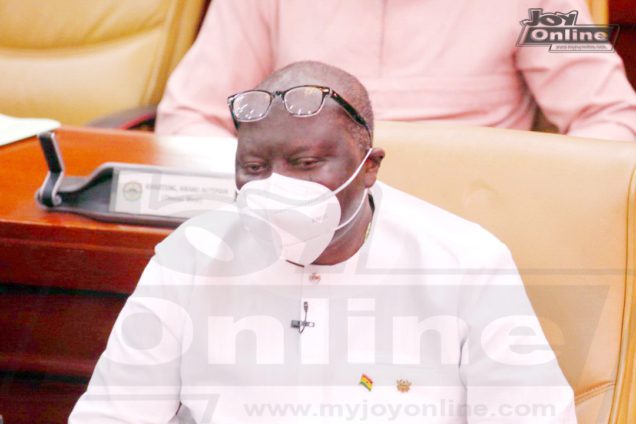Economist and Associate Professor at ISSER, Professor Robert Osei, says Ghana’s credit rating downgrade from a B to a B- with a negative outlook is Fitch’s way of signaling to the government that it is not comfortable at the pace at which the country’s debt is growing.
“Now if you have a situation where you’re actually spending 60+% of your expenditure just on compensation and then on debt repayment, essentially you have very limited fiscal space within which to operate and therefore it also could signal that you could compromise on your growth going forward,” he said.
“And if you compromise on your growth going forward, that hurts your revenue and then that comes back again to actually bite you in terms of your fiscal position which you started with,” he added.
Fitch in a report said their downgrade “comes in the context of uncertainty about the government’s ability to stabilise debt and against a backdrop of tightening global financing conditions.
“In our view, Ghana’s ability to deliver on planned fiscal consolidation efforts could be hindered by the heavier reliance on domestic debt issuance with higher interest costs, in the context of an already exceptionally high interest expenditure to revenue ratio.”
Speaking on JoyNews’ PM Express, Professor Osei stated that to bolster investors’ confidence in Ghana as an investment destination, it was laudable that the government was cutting its projected expenditure by 20%.
This he says will reduce the government’s projected expenditure for 2022 from around ₵135billion to close to ₵100 billion which will match the government’s revenue projections.
He was, however, skeptical about the ability of the government to meet their revenue projections considering the e-levy which has been pegged to be the driving force of the government’s revenue projection is facing serious opposition in Parliament.
“So again for the investor sitting out there they’re looking at all these different parameters and making a judgement because of course the ratings are not just quantitative, there are qualitative components of it as well, so they make a judgement as to whether given all the parameters that we know in respect of the economy whether we’re actually heading in the right direction or not.
“So the signal that we are giving in respect to cutting the expenditures is important because what you are signaling is that while we still intend to work on our revenue side of things we still believe that the gap between our revenues and our expenditures are high and therefore we need to work on that too to bring it down,” he said.
Latest Stories
-
Tano Anwia’s concession owner teams up with Forestry Commission to combat galamsey
14 minutes -
Gov’t allocates GH₵490m to Education Ministry
34 minutes -
Tragedy: Nigerian boxer dies after Ghana Pro League bout
57 minutes -
Opoku-Agyemang undergoes treatment at UGMC, set to receive further care abroad
4 hours -
The mystery of Bomigo: an island of divine laws, sacred goats, and unwavering traditions
6 hours -
Government’s GH₵ 292.4 million mistake: why free sanitary pads are the problem, not the solution
6 hours -
Crystal Palace beat Fulham to book FA Cup semi-final spot
15 hours -
Forest beat Brighton on penalties to reach FA Cup semi-final
15 hours -
MTN FA Cup 2024/25: Berekum Chelsea book semis slot with win over Bechem United
15 hours -
Gov’t promoting galamsey with GoldBod; the GoldBod is galamsey board – Minority
16 hours -
Ghana Navy probes suspected pirate attack on fishing vessel
16 hours -
2024/25 FA Cup: Attram De Visser stuns PAC Academy to reach first-ever semifinal
17 hours -
‘Shocking and excessive’ – Lawyer challenges $18m verdict in Anas-Kennedy Agyapong case
19 hours -
Parliament approves GH₵2.8bn for road maintenance
19 hours -
Minority Chief Whip raises concerns over ambiguities in Gold Board bill
20 hours

